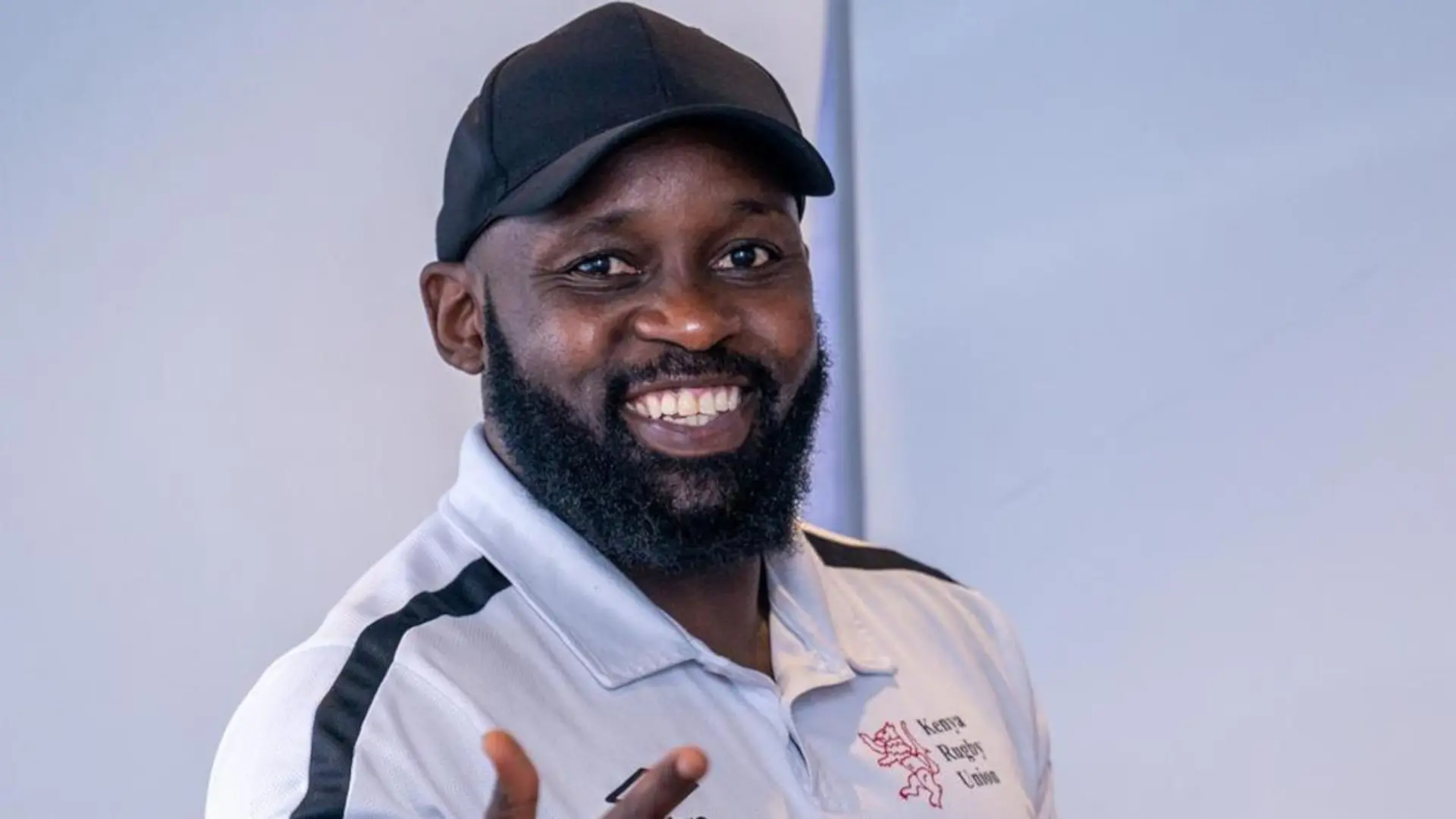Kenya Sevens head coach Kevin Wambua has underscored the critical need for a comprehensive youth development program to propel the national rugby team to new heights. This comes in the wake of Shujaa’s ninth-place finish at the Paris 2024 Olympics, hailed by the Kenya Rugby Union (KRU) as their ‘best-ever Olympic performance.’
Shujaa’s Olympic journey has seen gradual progress, with an 11th-place finish at the Rio Olympics and a 9th-place finish at the Tokyo Olympics. In Paris, Shujaa’s pool matches started with a 31-12 loss to Argentina, followed by a 21-7 defeat to Australia and a 26-0 loss to Samoa. However, they bounced back with a 19-14 win over Uruguay, leading to a ninth-place playoff where they defeated Samoa 10-5 to secure their position.
Reflecting on the team’s performance in the French capital, Wambua praised his players for their determination and stressed the importance of early talent development. He believes that integrating young talent into the squad requires a structured youth development program.
“One of the key lessons from this tournament is the necessity for a feeder program. Teaching basic skills at the top national level is challenging. We need a system to identify and nurture young players early on, so by the time they reach the national team, the focus can be on tactical and technical coaching,” Wambua explained.
Wambua highlighted the importance of continuous talent identification to ensure a steady stream of skilled players into the national team. “We need to identify and bring a few boys into camp, closely monitor their development, and see how they can integrate into the team to ensure a steady flow of talent,” he continued.
Additionally, Wambua emphasized the need to keep the Morans program active throughout the year to build depth and maintain players’ physical conditioning. “We aim to keep the Morans program running year-round to build depth and foster competition, ensuring the top players stay motivated and avoid complacency,” he added.
Inexperience was a significant hurdle for Shujaa, as many players lacked the experience to handle high-pressure situations and make quick strategic decisions. “We competed against teams with extensive World Cup and HSBC Sevens series experience, while three-quarters of our squad were first-time Olympians, showcasing the team’s potential,” Wambua noted.
Despite not winning a medal in Paris, Wambua remains hopeful. He believes that with the right initiatives to bridge the gap with top-tier rugby nations, Kenya’s potential is limitless. “We need to play consistently against top teams for the full 14 minutes, not just in spurts. This consistency will help us unlock our full potential,” he concluded.
The journey of Shujaa at the Paris Olympics was marked by a mixture of disappointment and hope. The initial pool matches were tough, as they faced strong opponents like Argentina and Australia. These matches exposed the gaps in Kenya’s preparation and execution. The 26-0 loss to Samoa was particularly humbling, highlighting the need for a more robust defensive strategy and better game management.
However, the team’s resilience was evident when they secured their first victory against Uruguay. This win was a crucial morale booster, allowing the team to regain some confidence and momentum. The subsequent victory over Samoa in the ninth-place playoff demonstrated that with the right mindset and preparation, Shujaa could compete and win against higher-ranked teams.
Wambua’s vision for a structured youth development program is critical for the long-term success of Kenya Sevens. By identifying and nurturing talent from a young age, the national team can ensure a steady pipeline of skilled players ready to step up when needed. This approach would also alleviate the pressure on current players, knowing there is a robust system in place to support and eventually replace them.
The Morans program, which serves as a feeder team to the national squad, plays a vital role in this development strategy. By keeping the Morans active throughout the year, Wambua aims to create a competitive environment where players can continuously develop their skills and stay in peak physical condition. This, in turn, will create healthy competition within the team, pushing each player to improve and avoid complacency.
In addition to technical and tactical training, Wambua emphasizes the importance of mental fortitude and experience. Competing against teams with extensive experience in international tournaments has shown that physical skill alone is not enough. Players need to be mentally prepared to handle high-pressure situations and make strategic decisions on the fly. This is an area where more exposure and experience can make a significant difference.
Looking ahead, Wambua is optimistic about the future of Kenya Sevens. With the right development programs in place, he believes that Kenya can become a formidable force in international rugby sevens. The potential is there, as evidenced by the team’s ability to compete against some of the best teams in the world. What is needed now is a concerted effort to build on this foundation and create a sustainable system for nurturing and developing talent.
The Kenya Rugby Union’s support for these initiatives will be crucial. Investing in youth development, providing resources for continuous training, and creating opportunities for international exposure are all steps that can help bridge the gap with top-tier rugby nations. With these measures in place, Kenya Sevens can look forward to not just participating in future Olympics but competing for medals and achieving greater success on the world stage.
In conclusion, the ninth-place finish at the Paris 2024 Olympics, while not resulting in a medal, has provided valuable lessons and highlighted the areas where Kenya Sevens needs to focus. Under Coach Kevin Wambua’s guidance, the emphasis on youth development, continuous training, and mental preparedness can pave the way for a brighter future. The potential is there, and with the right support and investment, Kenya Sevens can reach new heights in the world of rugby.
ALSO READ:Barcelona Edges Manchester City in Penalty Shootout Under New Manager Hansi Flick


